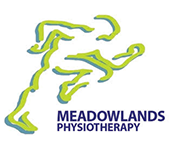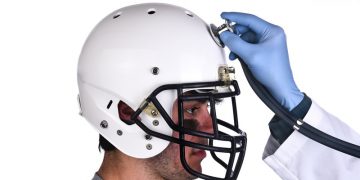Concussions
Concussions have made headlines in recent years as a result of new research into the long term effects, and their relationship with sports (especially football). But you don’t have to be a CFL lineman to suffer from a concussion. People of all ages suffer from concussions resulting from a wide variety of causes.
How you become concussed is important, but even more important is how you’re treated. Concussion management is a vital physiotherapy service for patients who hope to fully recover from their concussion.
What is a concussion?
According to the Brain Injury Association of Canada, a concussion is “a complex pathophysiological process affecting the brain, induced by traumatic biomechanical forces.” Concussions are generally caused by blow to the head but can also be caused by violent head movements like whiplash in a car accident. Often there is no, or minimal, visible head trauma. Concussions also do not necessarily result in a loss of consciousness.
Symptoms of a concussion:
- Loss of memory about what happened prior to or after the event that caused the concussion
- Confusion
- Short term memory loss and poor judgement
- Decreased reflexes
- Slurred speech
- Lack of coordination
- Headache or pressure in the head
- Feeling “foggy”
- Ringing in the ears
- Nausea
- Fatigue
- Sleep disturbance
- Personality changes
You should visit a doctor after any head injury, even if the signs of a concussion are minimal. This is especially true if you have any of the symptoms above. Medication is proven to be ineffective in aiding the treatment of concussions (although it may still help treat related injuries).
Post-concussion syndrome
The headaches, dizziness, fogginess and other symptoms of a concussion are often referred to collectively as post-concussion syndrome.
Second-impact syndrome
After sustaining a concussion an individual is more susceptible to suffering from another concussion. This “second-impact” can cause serious brain damage or death.
Long term consequences
Without immediate medical care, a concussion can cause serious complications, and even permanent brain damage or death.
Long term consequences include:
- Mental health issues such as depression
- Parkinson’s-like symptoms
- Susceptibility to future concussions
- Impact on cognitive function and eyesight
- Loss of libido
- Fatigue
- Weight gain
- Low blood pressure
- Weakness
- Dementia
- Learning disabilities
Common causes of concussions
Some of the most common causes of concussion include: sports injuries; car accidents; slips and falls; blows to the head, neck, or face; work accidents; playground accidents, or violent incidences.
Related injuries and complimentary treatments
Often when an individual sustains a concussion other injuries are also caused in the process, particularly in the neck, back, and shoulders. Part of effective concussion management includes identifying these injuries as separate from the concussion, and finding effective treatment solutions. This is why as part of your concussion management regime, your physiotherapist may advise additional treatments including massage.
What is concussion management?
Concussion management uses the latest medical knowledge to diagnose, monitor, and treat concussions. Concussion management includes working to remedy the immediate symptoms, avoid post-concussion syndrome, and minimize the long term consequences of a concussion through proactive exercises designed to maintain or repair cognitive function, balance, and restore motor function and strength.
Do you have a concussion?
If you have suffered a head injury you should first speak to a doctor. Once they have given you the green light it is time to take a pro-active approach to your recovery through concussion management. For treatment available in Ancaster, Ontario visit Meadowlands Physiotherapy, and ask for a consultation with our concussion management physiotherapist, Laura Baillie.
Sources:
FAQs
(1) Is there physical therapy for a concussion?
If you have dizziness or difficulty with your balance following a concussion, a type of physical therapy called vestibular physical therapy may help. The vestibular system, which includes the inner ear and its connections with the brain, helps you keep your balance and prevent dizziness.
(2) What are some common treatments for concussions?
Treatment may include:
- Drinking plenty of water. Concussions can cause nausea and vomiting, which lead to dehydration.
- Getting enough rest.
- Taking a break from sports and other strenuous activities.
- Not driving a vehicle right away
- Avoiding alcohol while recovering
- Brain rest.
- Physiotherapy
Explore More on Concussion Management
The “Invisible” Injury: Physiotherapy for Concussion Management
Brain Injury Canada estimates that 160,000 Canadians sustain a brain injury each year. Many of these are concussions,...
Read PostHow Can Physiotherapy Help My Child?
As children develop, they gain physical skills such as walking, riding a bike, and playing sports. Some children miss...
Read Post

